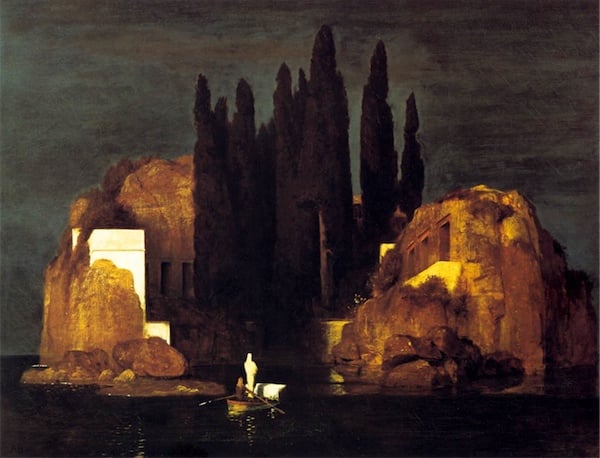
Merk Dir: jeder Schritt im Leben
?
ist ein tiefrer. Worte! Worte! ?
Merk Dir nichts als dies, Tarquinius:
?
wer nicht wahr ist, wirft sich weg! ?
. . . Doch vielleicht begreifst Du dies
?
erst, wenn es zu spät ist; merk’ ?
dies allein: nicht eine einzige ?
Stunde kommt zweimal im Leben,
?
nicht ein Wort, nicht eines Blickes ?
ungreifbares Nichts ist je ?
ungescheh’n zu machen, was
?
Du gethan hast, musst Du tragen,
?
so das Lächeln wie den Mord!
Take note: every step in life
Is deep. Words! Words!
Note nothing beyond this, Tarquinius:
He who is untrue, throws himself away!
. . . Though you may well appreciate this
When it is too late; note
This alone: not a single hour
Comes twice in the course of a life,
Not a word, not a glance
An incomprehensible nothing may
Never be undone, if once it was done,
You must bear it,
The smile as well as the murder!
—Hugo von Hofmannsthal, Der Kaiser und die Hexe p. 25 (1900)(S.H. transl.)
Hofmannsthal may be best known today for his masterful operas that resulted from his collaboration with Richard Strauss, but I love his early works, all of which have a strong lyrical quality. We see in them a parade of noble, elegant figures speaking ethereal, highly sculpted words. There is always an other-worldly quality about them—they are taken from a world of myth and fairy tale and there is only very rarely any demonstration of passion or violence. Hofmannsthal’s object is beauty; he projects a strong aesthetic sense in which everything is heavily laden with meaning and symbolism. This passage from Der Kaiser und die Hexe tells us something about his aestheticism and the growing anxiety with which he approaches his craft as a writer. But this piece is about words and deeds, and among Hofmannsthal’s early work it also carries a complex message of social justice—an unusual element for a writer who was, particularly at this time, a strong cultural conservative. This dramatic poem opens with the emperor out on a hunt, though he almost immediately asks himself—am I the hunter, or the hunted? He is absorbed with thoughts about a witch, whose clutches he is trying to escape (raising a typically fin-de-siècle theme about the relationship between men and women, in which the later routinely appear as seductresses)—but that theme is ultimately secondary to the question of accountability he faces for his acts as a ruler. He has, we learn dealt wrongly with political rivals, and they chance to cross his path as wretches. There is no undoing a misdeed from the past, he says, but his noble inner voice also admonishes him not to be bound by it in the future (“Grauenhaftes, das vergangen / Giebt der Gegenwart ein eignes / Leben, eine fremde Schönheit, / Und erhöht den Glanz der Dinge / wie durch eingeschluckte Schatten”). But this work has a dream-like quality, and it ultimately presents only a series of dichotomies—between words and deeds, fact and fiction, the powerful and the powerless, the masculine and the feminine—without offering clear moral solutions or answers. The press of death hangs over this work. The emperor’s acts are guided by consciousness of his mortality and apprehension about his misdeeds. Hofmannsthal tells us that those who wield temporal power face extraordinary temptations that can bring them low, and having fallen once, they may fall serially to preserve the aura of their innocence. Death is presented as the great leveler and point of accountability for the powerful.
The Swiss painter Arnold Böcklin is best known for The Isle of the Dead, a painting that he recreated several times, and which was extremely influential in the waning days of the nineteenth century. It presents an aesthetic image much like the one Hofmannsthal weaves in Der Kaiser und die Hexe, and it is masterfully realized in musical terms in the orchestral poem “The Isle of the Dead,” op. 29 (1908) by Sergei Rachmaninoff. Listen to a performance by the Philadelphia Orchestra conducted by Rachmaninoff himself:


